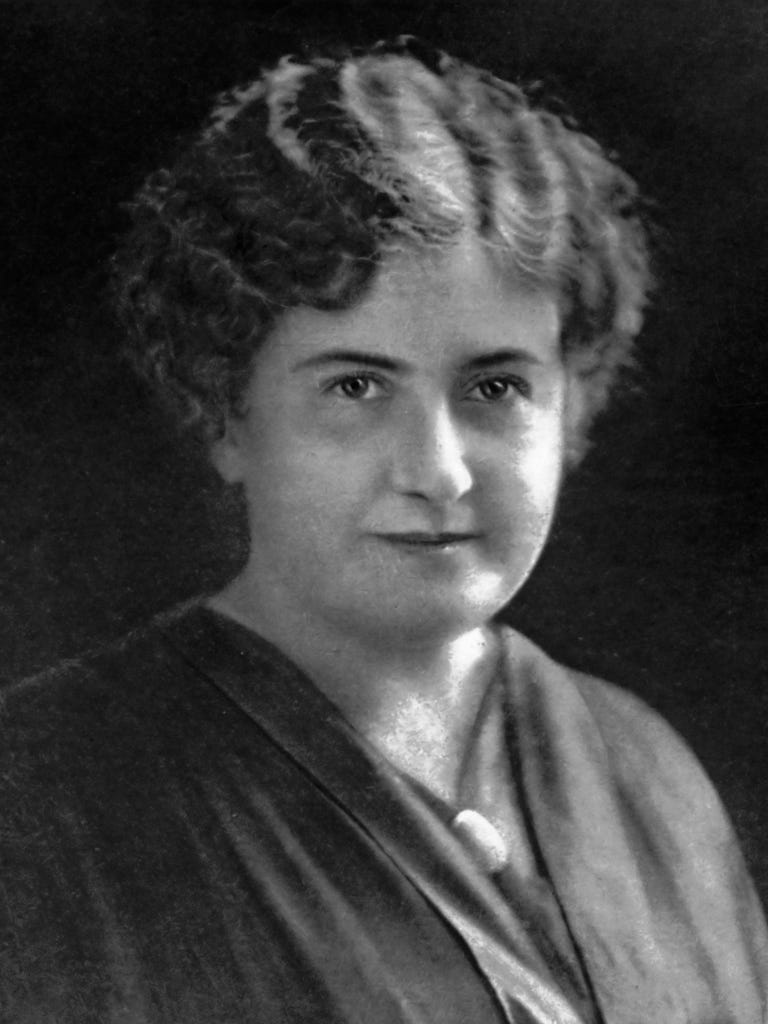#125 - Notes on Learning, Montessori and Gopnik
Education Coffee is a 2xWeekly Newsletter on People, Ideas and Culture.
Why #LearningResearch?
My thinking on learning has evolved considerably over time. I have built on the work of so many educators and researchers. I am grateful to them for the work they do and the time they took from their schedules to document what they saw and observed in a variety of learning environments. In this series of #EducationCoffee newsletters I will aim to summarize the work of these thinkers in the most accessible way possible. I will add links to help you with further research.
Montessori on Teachers as Facilitators
Maria Tecla Artemisia Montessori was an Italian physician and educator best known for her philosophy of education and her writing on scientific pedagogy. At an early age, Montessori enrolled in classes at an all-boys technical school, with hopes of becoming an engineer. Her research on teachers as facilitators has helped shape my thinking about learning. You can learn more about her research by following the notes and links.
Maria Montessori’s philosophy and work on learning and education are foundational to the Montessori method, which emphasizes child-centered learning and development. Here are the key points:
Child-Centered Learning: Montessori believed that education should be tailored to the individual needs, interests, and pace of each child, rather than a one-size-fits-all approach.
Respect for the Child: She emphasized treating children with respect and recognizing their unique potential, advocating for their autonomy and independence.
Sensitive Periods: Montessori identified specific developmental stages (sensitive periods) during which children are particularly receptive to learning certain skills, such as language or fine motor skills.
Prepared Environment: She stressed the importance of a carefully designed learning environment that is orderly, accessible, and filled with materials that encourage exploration and discovery.
Hands-On Learning: Montessori education prioritizes experiential, hands-on learning with specially designed materials that engage the senses and promote self-directed activity.
Role of the Teacher: The teacher (or “guide”) acts as a facilitator rather than a traditional instructor, observing and supporting the child’s natural development.
Freedom Within Limits: Children are given the freedom to choose their activities within a structured environment, fostering independence and self-discipline.
Holistic Development: Montessori education focuses on the development of the whole child—cognitive, social, emotional, and physical—rather than just academic skills.
Mixed-Age Classrooms: Montessori classrooms often include children of different ages, encouraging peer learning, collaboration, and mentorship.
Lifelong Love of Learning: The goal of Montessori education is to cultivate intrinsic motivation, curiosity, and a lifelong passion for learning.
Montessori’s work has had a lasting impact on early childhood education worldwide, with her methods being adapted in schools and educational systems globally.
Gopnik on Development
Alison Gopnik is an American professor of psychology and affiliate professor of philosophy at the University of California, Berkeley. Her research on child development has helped shape my thinking about learning. You can learn more about her research by following the links in the notes and citations.
Alison Gopnik’s research focuses on child development, particularly how children learn, think, and understand the world. Her work explores the cognitive processes of young children, emphasizing the idea that they are not just passive recipients of information, but active, sophisticated learners who use a variety of strategies to make sense of their environment. Gopnik has investigated topics such as:
Theory of Mind: Gopnik’s studies on how children develop an understanding of other people’s thoughts, feelings, and intentions have shown that even very young children are capable of complex social reasoning.
Causal Learning: Her research suggests that children are keen observers of cause and effect, and they learn by experimenting with their environment, testing hypotheses, and drawing conclusions.
Exploration and Play: Gopnik emphasizes the importance of play in child development. She argues that children engage in playful exploration as a way to gather information, practice new skills, and make sense of the world.
Learning from Others: She explores how children learn from their interactions with adults and peers, highlighting the role of language, social cues, and imitation in the learning process.
Development of Cognitive Skills: Gopnik has also looked at how children’s cognitive abilities evolve over time, including their capacity for memory, reasoning, and problem-solving. Her work highlights the sophisticated nature of children’s thinking, challenging traditional views that children are less capable than adults.
Overall, Gopnik’s research paints a picture of children as highly active, thoughtful learners who engage with the world in ways that are complex and insightful, well before they can articulate their understanding.
Notes and Links
Maria Montessori Profile – https://amshq.org/About-Montessori/History-of-Montessori/Who-Was-Maria-Montessori
History of Montessori – https://amshq.org/About-Montessori/History-of-Montessori
Inside the Montessori Classroom – https://amshq.org/About-Montessori/Inside-the-Montessori-Classroom
Gopnik Google Scholar Page – https://scholar.google.com/citations?hl=en&user=2tt6ZJ0AAAAJ
Gopnik Website – http://alisongopnik.com/
Gopnik Books – http://alisongopnik.com/Alison_Gopnik_Books.htm
Gopnik Papers – http://alisongopnik.com/Papers_Alison/
Abhishek Shetty





